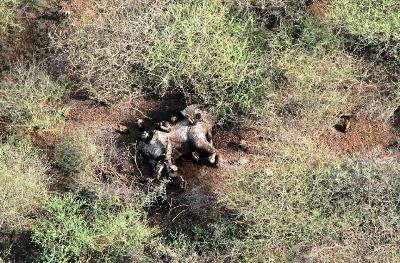S. Sudan’s wildlife and natural resources under threat: report
March 2, 2016 (JUBA) – South Sudan army, its various armed groups and civilians should halt all wildlife poaching and trafficking activities, conservationists warned.

“These illegal activities are being perpetrated by local as well as international individuals and actors, including members of the various armed forces active in the country,” WCS said in a report released on 2 March.
All sides currently involved in the South Sudan conflict, according to scientific monitoring and investigations undertaken by WCS and partners in the past months, have documented a sharp rise in illegal activities in various areas of the young nation.
Over the past two years of armed conflict, WCS said, the various armed forces across the country have been implicated in cases of large-scale wildlife poaching (both for consumption and commercial trafficking).
Last month, WCS said in its report, 19 government soldiers and 11 civilians were arrested for commercial bush meat poaching and trafficking by government wildlife rangers, with sacks of dried meat of more than 60 antelopes.
“There has also been increased ivory trafficking registered both within the country and across its borders”, says the report.
It cites ivory poaching and trafficking, commercial bushmeat poaching and trafficking, illegal logging, gold mining and charcoal production as some of the illegal activities.
South Sudan’s extensive areas of untouched natural woodlands, forests, and savannas, were home to wildlife populations including approximately 2,500 elephant, some several hundred giraffe, according to WCS studies.
These areas reportedly support pastoralist livelihoods, fishing, non-timber forest products and other important reserves of minerals and oil resources.
“The humanitarian crisis and expanding pressures on natural resources in South Sudan require redoubling of international and local efforts for the full implementation of the August 2015 peace agreement and securing the people, wildlife, and overall natural resource base of the country,” said Cristián Samper, WCS’s President and CEO.
CALLS FOR ACTION
South Sudan’s Transitional Government of National Unity peace partners, states, community representatives, to make natural resource governance, transparency, and management a top national and local priority, WCS said.
“A focussed natural resource crisis action plan should be designed, adopted, and fully implemented,” it added, calling for the full implementation of all wildlife, forestry, mining and existing environmental laws.
(ST)
